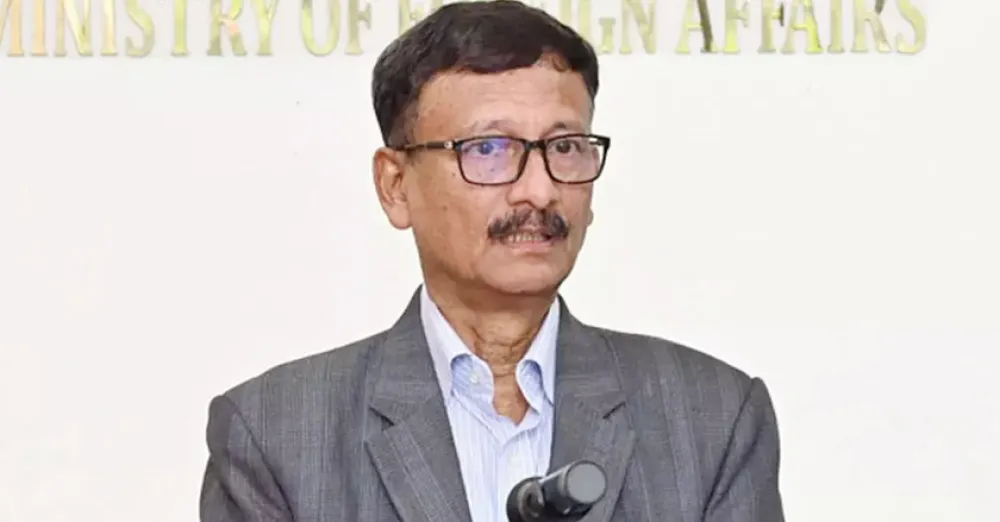
Foreign Affairs Adviser Md Touhid Hossain has warned that the unresolved Rohingya crisis could soon escalate into a serious threat to regional security if a sustainable solution is not urgently pursued.
Our humanitarian act has put us in immense socio-economic and environmental challenges; and the situation is now posing new security risks," he said.The adviser made the remark while addressing a high-level open debate at the United Nations Security Council (UNSC) titled "The impact of poverty, underdevelopment and conflict on international peace and security" on Thursday at the UN headquarters in New York, according to a message received here today.
Hossain pointed out that for over eight years, Bangladesh has been hosting 1.2 million Rohingya people who fled from their own country Myanmar due to persecution by the military regime.
Saying that protracted crises often emerge from systemic marginalization, the adviser called for renewed international attention and action to ensure Rohingya's return with safety and rights.
"This is not only a matter of justice, but also vital for preventing a root cause of a potential instability in our region," he said.
Hossain said that the world today is marked by the interconnected challenges of poverty, underdevelopment, and conflict.
"If we are to preserve international peace and security, addressing these challenges is not optional - it is essential," he said.
The adviser said that Bangladesh has long viewed its youth as powerful agents of positive change.
From the historic Language Movement of 1952 to the Liberation War, and most recently, the student-led "Monsoon Revolution," he said, young people in Bangladesh have consistently been at the forefront of movements against inequality and injustice.
"We are also deeply aware of the consequences when young people are denied access to education and employment," said the adviser.
He said that the current global development and security landscape is shaped by long-standing inequities, many of which stem from centuries of political subjugation and economic exploitation.
"Correcting these imbalances is our shared responsibility." Hossain added.
In this context, he said that Bangladesh advocated for a future guided by the bold vision of "three zeros" proposed by Nobel Laureate Prof Muhammad Yunus: zero poverty, zero unemployment, and net zero carbon emissions.
"These are not just development goals-they are foundational to lasting peace and stability," he observed.
The adviser said that Bangladesh sees strong merit in enhanced coordination across the three pillars of the United Nations and emphasizes the importance of collaboration between the Security Council, ECOSOC, and the Peacebuilding Commission to ensure that peacebuilding strategies reflect on-the-ground development realities.
In this regard, he said that Bangladesh recognized the transformative potential of "social business," pioneered by Chief Adviser Prof Yunus,
"By prioritizing people over profits, such enterprises boost inclusive growth and reduce grievances that would otherwise lead to unrest. We believe this approach offers valuable lessons worth replicating globally, he said.
The foreign adviser said that Bangladesh would remain committed to doing its part, and to working alongside all concerned in pursuit of a more just, peaceful, and secure world.source : BSS
